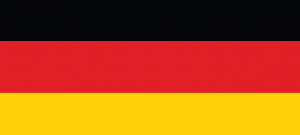Difference between revisions of "Language/German/Grammar/Definite-Articles-in-German"
Jump to navigation
Jump to search
m (Quick edit) |
m (Quick edit) |
||
| Line 1: | Line 1: | ||
[[File:learn-german-polyglot-club2.jpg|thumb]] | [[File:learn-german-polyglot-club2.jpg|thumb]] | ||
== '''Some Definite Articles in German''' == | == '''Some Definite Articles in German''' == | ||
| Line 73: | Line 72: | ||
|Os doutores | |Os doutores | ||
|} | |} | ||
=== '''<big>SINGULAR (FEMININE Use (DIE) / PLURAL (FEMININE Use (DIE)</big>''' === | === '''<big>SINGULAR (FEMININE Use (DIE) / PLURAL (FEMININE Use (DIE)</big>''' === | ||
| Line 149: | Line 147: | ||
| | | | ||
|} | |} | ||
=== '''<big>SINGULAR (NEUTER Use (DAS) / PLURAL (NEUTER Use (DIE)</big>''' === | === '''<big>SINGULAR (NEUTER Use (DAS) / PLURAL (NEUTER Use (DIE)</big>''' === | ||
| Line 220: | Line 217: | ||
|} | |} | ||
== | ==Other Lessons== | ||
* [[Language/German/Grammar/Negation|Negation]] | * [[Language/German/Grammar/Negation|Negation]] | ||
* [[Language/German/Grammar/How-to-Use-Be|How to Use Be]] | * [[Language/German/Grammar/How-to-Use-Be|How to Use Be]] | ||
| Line 231: | Line 228: | ||
* [[Language/German/Grammar/Indefinite-Articles-in-German|Indefinite Articles in German]] | * [[Language/German/Grammar/Indefinite-Articles-in-German|Indefinite Articles in German]] | ||
* [[Language/German/Grammar/Past-Tense---Part-1---Perfect-Tense|Past Tense Part 1 Perfect Tense]] | * [[Language/German/Grammar/Past-Tense---Part-1---Perfect-Tense|Past Tense Part 1 Perfect Tense]] | ||
<span links></span> | |||
Latest revision as of 10:22, 27 March 2023
Some Definite Articles in German[edit | edit source]
SINGULAR (MASCULINE Use (DER) / PLURAL (MASCULINE Use (DIE)[edit | edit source]
| ENGLISH | PRONUNCIATION
ENGLISH |
GERMAN | PRONUNCIATION
BRAZILIAN PORTUGUESE |
BRAZILIAN
PORTUGUESE |
| The dog | dehr hoont | Der Hund | der Húunt | O cachorro |
| The dogs | dee hoon deh | Die Hunde | dii Húun de | Os cachorros |
| The bird | dehr foh gehl | Der Vogel | dér fo gueL | O pássaro |
| The birds | dee fer gehl | Die Vögel | dii fó gueL | Os pássaros |
| The doctor | dehr ahrt stih | Der Arzt | dér ártsti | O doutor |
| The doctors | dee ehrt ste | Die Ärzte | dii értste | Os doutores |
SINGULAR (FEMININE Use (DIE) / PLURAL (FEMININE Use (DIE)[edit | edit source]
| ENGLISH | PRONUNCIATION
ENGLISH |
GERMAN | PRONUNCIATION
BRAZILIAN PORTUGUESE |
BRAZILIAN
PORTUGUESE |
| The city | dee shtaat | Die Stadt | dii chtaat | A cidade |
| The cities | dee steh teh | Die Städte | dii stéete | As cidades |
| The flag | dee faa neh | Die Fahne | dii faa ne | A bandeira |
| The flags | dee fah nehn | Die Fahnen | dee faa nen | As bandeiras |
| The bill | dee reh kh noonk | Die Rechnung | dii reCH nuunk | A conta |
| The bills | dee reh kh noon gehn | Die Rechnungen | dii reCH nuun guen | As contas |
SINGULAR (NEUTER Use (DAS) / PLURAL (NEUTER Use (DIE)[edit | edit source]
| ENGLISH | PRONUNCIATION
ENGLISH |
GERMAN | PRONUNCIATION
BRAZILIAN PORTUGUESE |
BRAZILIAN
PORTUGUESE |
| The horse | dahs pih fehrt | Das Pferd | das pfért | O cavalo |
| The horses | dee pih fehr deh | Die Pferde | dii pfér de | Os cavalos |
| The house | dahs hah oos | Das Haus | das Háus | A casa |
| The houses | dee hoy zuhr | Die Häuser | dii Hói zâr | As casas |
| The window | dahs fehns tuhr | Das Fenster | das féns târ | A janela |
| The windows | dee fehns tuhr | Die Fenster | dii féns târ | As janelas |
Other Lessons[edit | edit source]
- Negation
- How to Use Be
- Simple negative sentences
- Declension
- Questions
- How to Use Have
- Adjectives
- Nouns
- Indefinite Articles in German
- Past Tense Part 1 Perfect Tense
